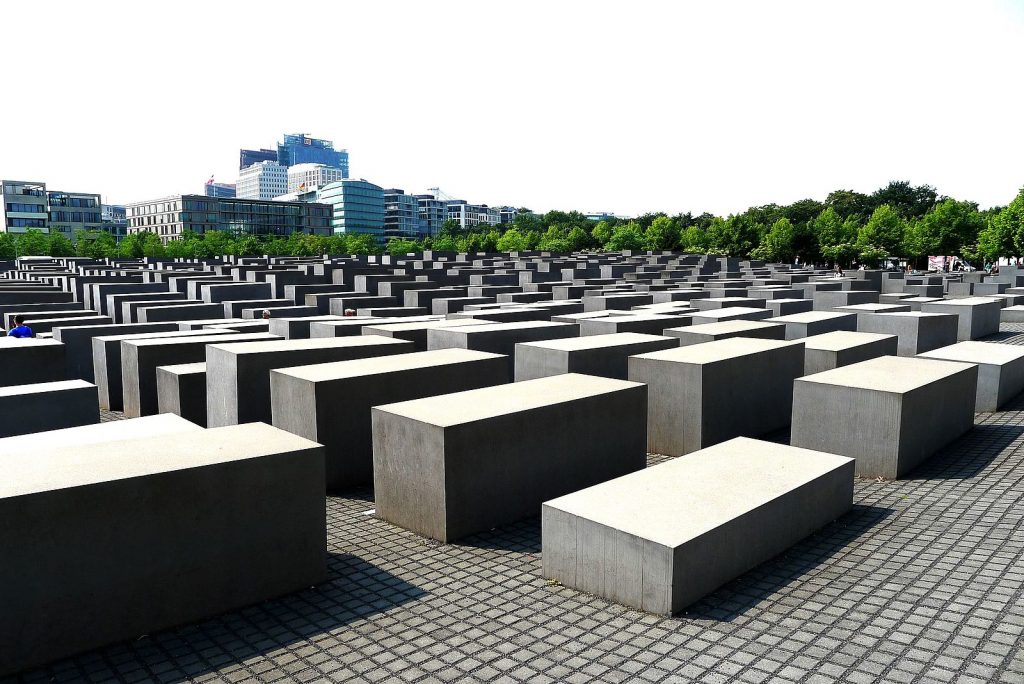The Holocaust, known also as the Shoah, is the most notorious episode and symbol of the brutal Nazi regime. It was the systematic and state-sponsored genocide program that persecuted and killed Jewish people, resulting in over six million innocent deaths.
Memorials, monuments, and museums have been built around the world to honor the lives of the six million Jews who were murdered during the Holocaust. In Berlin, the Memorial to the Murdered Jews of Europe (opened in 2005), could well be considered the most dramatic of these memorials.
 Memorial to the Murdered Jews of Europe in Berlin, Germany (Wikimedia Commons)
Memorial to the Murdered Jews of Europe in Berlin, Germany (Wikimedia Commons)
Other groups of people deemed undesirable by the Nazi regime, such as the Roma, homosexuals, Jehovah’s Witnesses and Soviet prisoners of war suffered, too, in concentration camps and in public across German-controlled territory. Including the Holocaust that systematically exterminated six million European Jews, the loss of life in World War II (including other persecuted minorities, armed forces on both sides and civilian casualties) is estimated to have been at least 75 million.
The non-combatant lives lost in World War II are not diminished by attention to the Holocaust and the Nazis’ single-minded determination to remove Jews from existence. Rather, the Holocaust today – as recognized by UNESCO’s inscription of the Auschwitz-Birkenau death camp on the World Heritage List – should be remembered as a horrific act of utter inhumanity and a caution to the world about unchecked evil.

